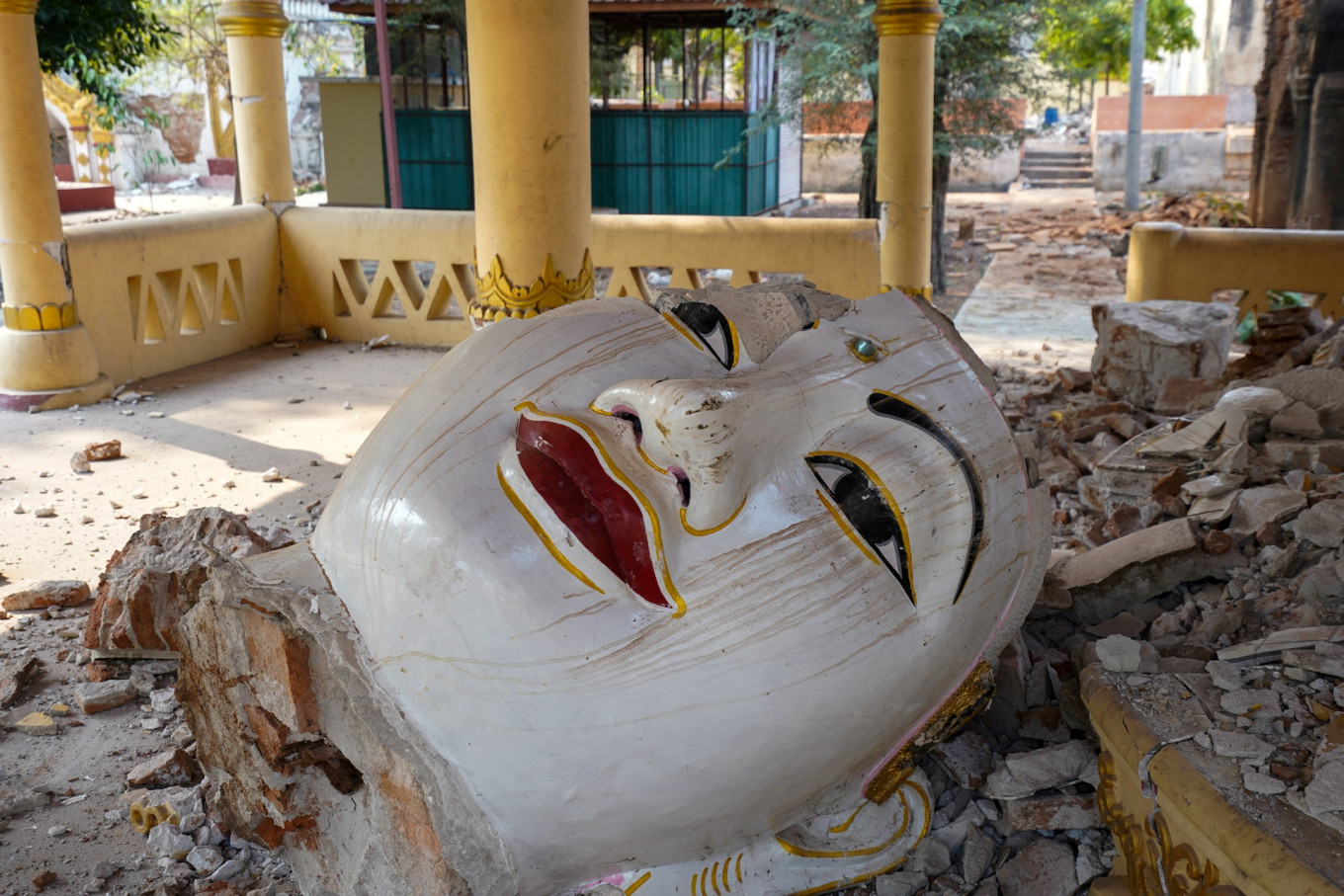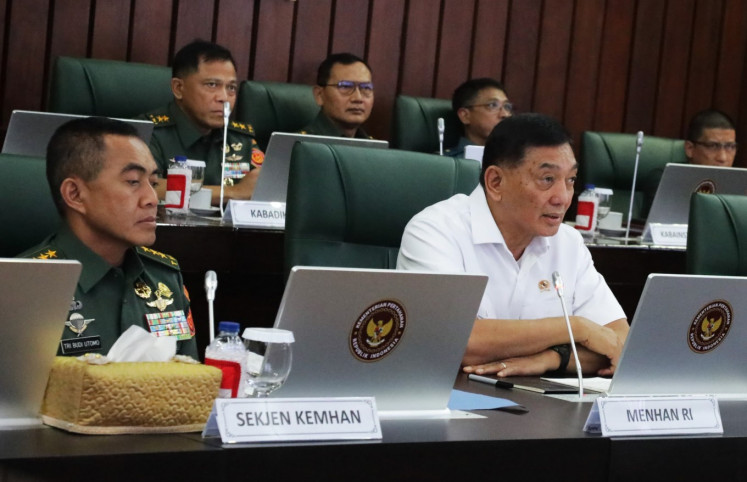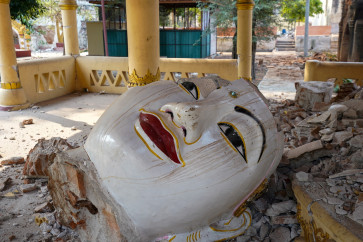Popular Reads
Top Results
Can't find what you're looking for?
View all search resultsPopular Reads
Top Results
Can't find what you're looking for?
View all search resultsMyanmar recovery: An urgent plea for ASEAN-led global action
ASEAN must step forward to guide the recovery in Myanmar, potentially building on the model of the Tripartite Core Group, involving the military junta, ASEAN Plus (with China and India) and the UN.
Change text size
Gift Premium Articles
to Anyone
T
he devastating 7.7-magnitude earthquake on March 28 has exacerbated an already dire humanitarian situation in Myanmar. According to the United States Geological Survey (USGS), the death toll could surpass 10,000, with 15.2 million people affected, critically requiring temporary shelter, water, sanitation, medical support and food.
The United Nations highlighted that even before this latest tragedy, a significant portion of Myanmar’s population needed assistance, and the earthquake risks will further erode the resilience of communities already struggling with conflict, poverty and past disasters.
Myanmar, much like Indonesia, is highly susceptible to natural disasters, situated on a seismically active fault line. The recent earthquake is a stark reminder of the region's vulnerability to such events.
Exactly 20 years prior, on March 28, 2005, an 8.7-magnitude earthquake ravaged the Nias and Simeulue Islands of Aceh, Indonesia. This was a major aftershock of the catastrophic 9.3-magnitude earthquake and subsequent tsunami that struck Aceh on Dec. 26, 2004, causing widespread devastation across the Indian Ocean.
The year after, the region also experienced the 6.3-magnitude Yogyakarta earthquake. These events underscore that earthquakes measuring 7 and above on the Richter scale are a frequent occurrence, which begs for more advanced earthquake preparedness and resilience.
The current geopolitical landscape necessitates a new approach and a fundamental rethinking of how the international community coordinates and delivers aid. The international response to this disaster remains concerningly low, stemming from Myanmar’s low credibility in the global eye and the United States’ withdrawal of substantial aid. Historically, the UN has relied heavily on US support during such crises. The responses to the 2004 Aceh-Nias disaster, even until the recent 2023 earthquake in Turkey were largely US-led, with the UN as the backbone.
The situation calls for a vigorous global effort, involving both the Myanmar government and the broader international community. It is important to recognize that the recovery effort must go beyond simply addressing the immediate post-earthquake demands. It must also tackle long-standing development challenges, such as poverty and social conflict, which aggravate the impact of the disaster and slow down long-term development.



















